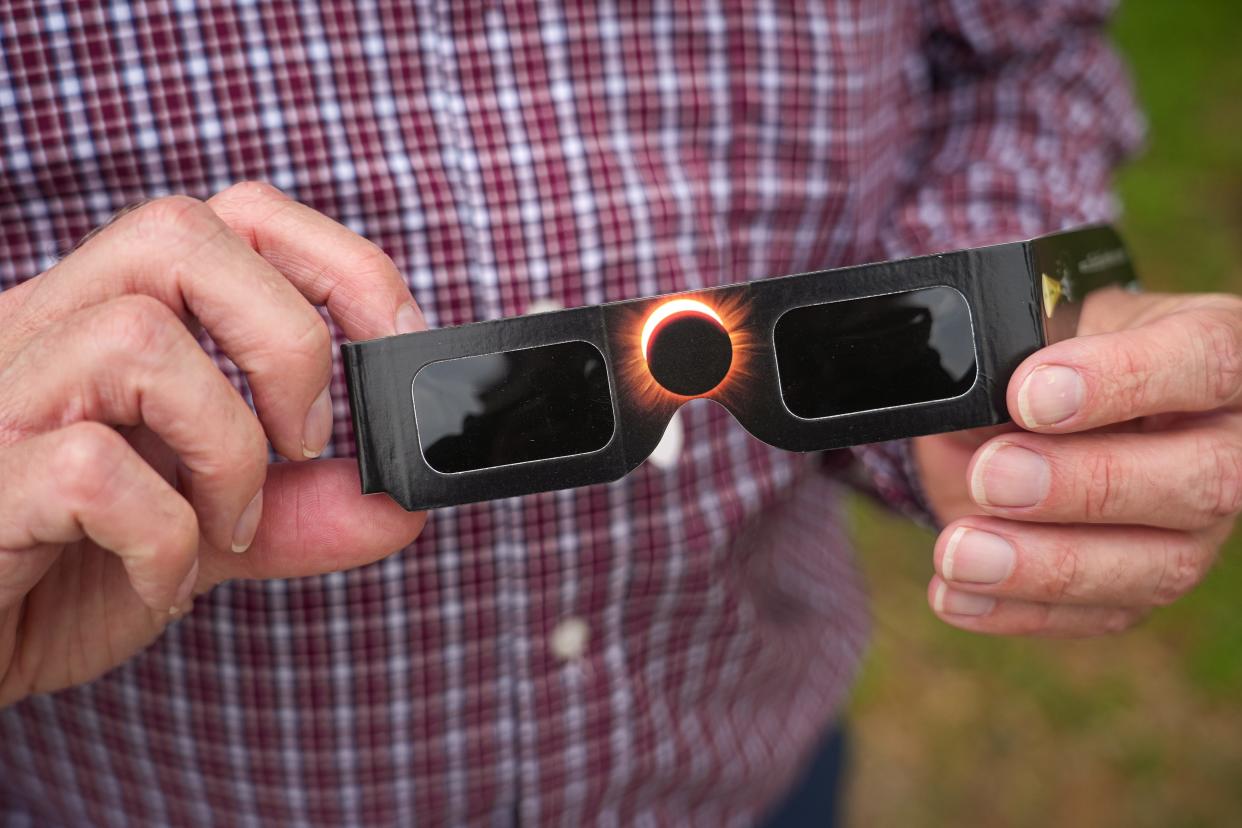Beware before you stare: Doctor offers eclipse safety tips

An ophthalmologist at University Hospitals is warning people to protect their eyes Monday when the total solar eclipse passes over Northeast Ohio.
Many visitors are expected in Northeast Ohio because it is a prime viewing location within the path of totality. A total solar eclipse occurs when the Moon passes between the Sun and Earth, blocking the face of the Sun and causing complete darkness.
Dr. Natasha Kesav,senior ophthalmology resident at University Hospitals Cleveland Medical Center, said safety is the No. 1 priority when viewing a total solar eclipse. Some of her tips include:
Supervise children: Kersay said a person’s age, time of exposure, and whether or not they’re directly viewing the sun are some of the risk factors. The younger the person, the more crystal clear their lenses are. More light can enter and more damage can occur if improperly viewing the sun, making it important that children be properly supervised and wearing appropriate eyewear.
Short exposure can cause damage: Even three seconds of exposure can cause severe, permanent damage to eyes, even blindness.
What is solar retinopathy? Solar retinopathy refers to photochemical injury to the retina – the thin layer in the back of the eye that transmits light to the brain to create images. It is commonly associated with eclipse viewing, and can lead to seeing permanent spots in your eyes, blind spots, and interpreting straight lines as wavy. Additional symptoms such as warped or blurred vision, abnormal color vision and headaches may also occur.
Choosing eclipse glasses: Specific ISO 12312-2certified glasses are the only ones that should be worn during eclipse viewing. Don’t fall for fakes, source your glasses from vetted suppliers, and look for the manufacturer’s serial number.
Lenses don't protect: Viewing any part of the sun through a camera lens, binoculars, or a telescope without a special-purpose solar filter will instantly cause severe eye injury. You can safely view the eclipse indirectly using a pinhole projector method instead.
This article originally appeared on Record-Courier: Beware before you stare: Doctor offers eclipse safety tips

